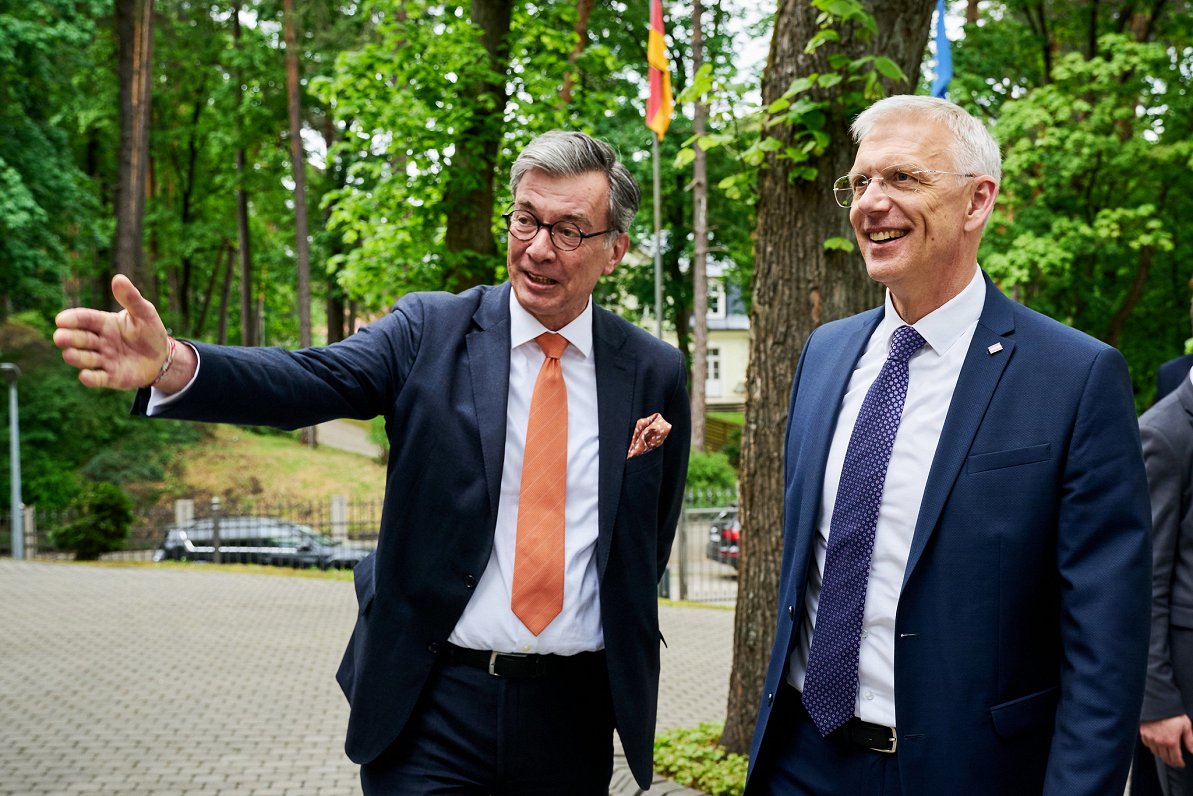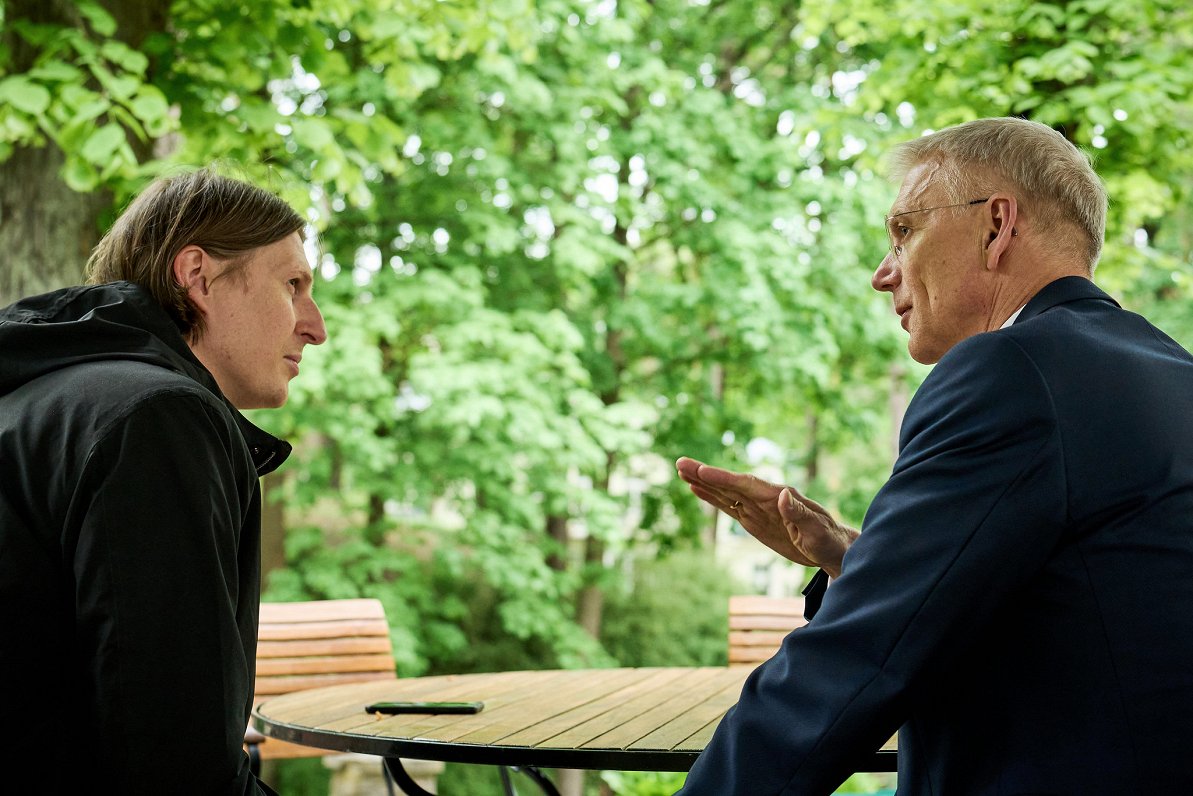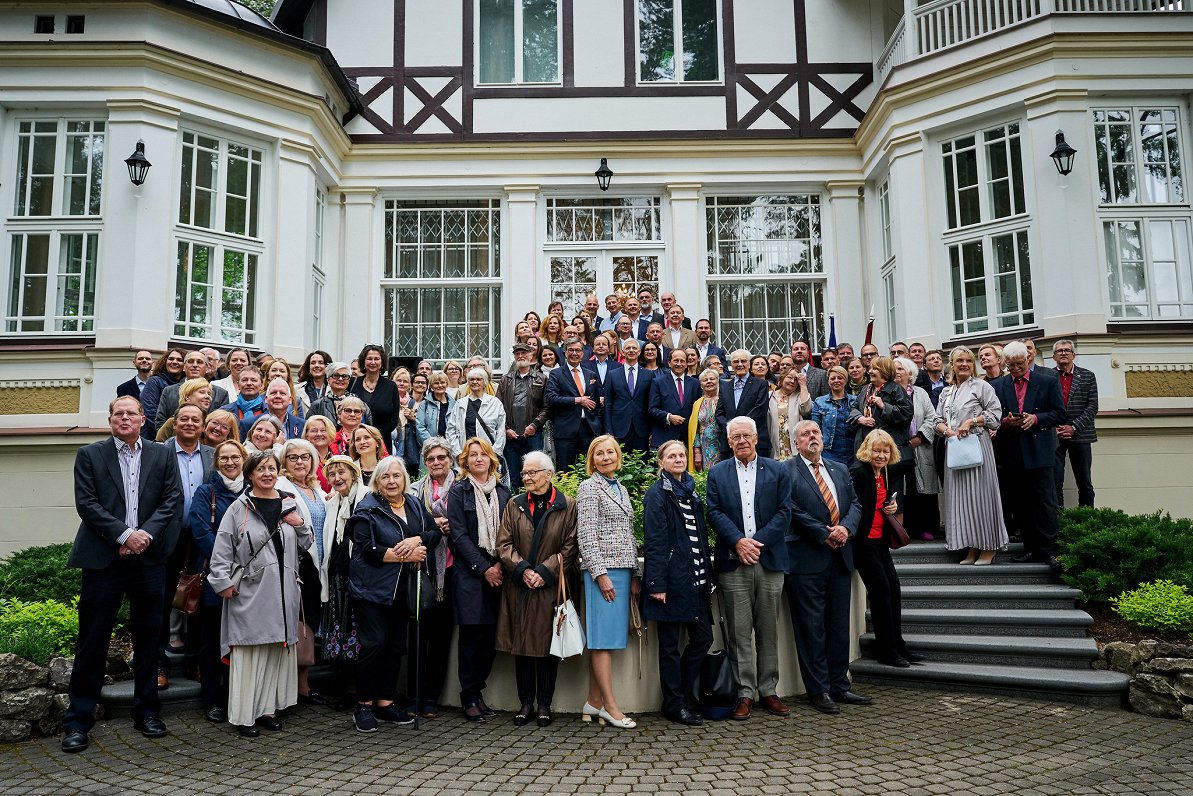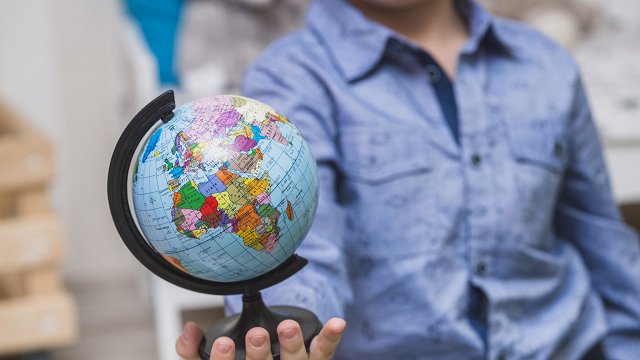Founded after World War II for children of exiled Latvians in Germany, the school was the only Latvian Gymnasium in the western world and became the educational centre for the Latvian exile during the Soviet occupation.
There was a lot to talk about. "Do you remember..." and "Yes, back then..." could be heard at each corner in the big garden of the residence of German ambassador Christian Heldt, who initiated the get-together to mark the 25th anniversary of the school's closure in 1998.
The Münster Latvian Gymnasium (Minsteres latviešu ģimnāzija) was founded in a displaced person camp in Detmold on February 15, 1946 and was in Münster since its was relocated there in 1957. The school was the only recognized Latvian educational institution outside of Latvia. It was financed largely with funds from Germany. The school ceased operations after handing out the last high school diploma on June 20, 1998.
In the more than five decades of its existence, the school educated around 2,000 young Latvians who studied for some time at the school or graduated from it.
"In my first Corona winter here 2020/21 I was able to read a lot and kept stumbling across the mythical Latvian Gymnasium over and over again," the hosting envoy said in his welcoming speech, adding that he got even more excited about "a unique story" once he talked with alumni.
More than 400 students passed their Abitur in Münster. The list of well-known graduates is long - not a few of them returned to their homeland after Latvia regained its freedom in 1991 to take on responsibility in many fields.

"You can all proudly look back on what the Latvian Gymnasium Münster has created in more than half a century of its work: A network of people who carried free Latvia in their hearts and who learned in Münster to prepare for their return to a free homeland", Heldt said, adding that he is proud that Germany was able to host and support the school.
The Latvian Gymnasium was not just a school - it was a societal, cultural, and political centre for Latvians worldwide. It preserved the Latvian language, traditions, identity, and kept the idea of a free Latvia alive, as many of its graduates pointed out.
Back in the days, students of the school were actively engaged in protests and demonstrations against the Soviet Union – some of them even drew graffiti on the Berlin Wall with calls like "Freedom for the Baltic States."
Among the most prominent Minsterieši, as the alumni of the school are called in Latvian, are two of the currently highest-ranking state officials in Latvia: President Egils Levits and Prime Minister Krišjānis Kariņš.
"It is incredible that I can stand here as Prime Minister and that the President was also my teacher. That is amazing and shows a bit how important this school was," said Kariņš in his speech, which he partly delivered in German.
Referring to the long and not always easy common history of Latvia and Germany, the chairman of the German-Baltic parliamentary group in the Bundestag, Alexander Graf Lambsdorff, pointed out: "If there is an element, a moment that we both Latvians and Germans can really be proud of, then it is the Latvian Gymnasium in Münster."
'A fantastic place to be young'
Stopping by at the "class reunion" Kariņš moved casually among his former classmates and other graduates of the school – and even met his former maths and physics teacher. "Let's not talk about grades," Kariņš greeted him with a smile, while he himself was welcomed by many with a straightforward "Čau, Krišjānis!" when he arrived with his entourage.
The US-born Kariņš studied in Münster in 1984 and has fond memories about his school time. "It was a fantastic place to be young because we had of course quite intensive studies but we all lived together in the dormitory. So we had a huge social life together, everyone was away from the families", he told LSM.
"It was just a fantastic forging of community. I feel privileged to be part of it."
Talking to LSM on the sidelines of the light-hearted event, Kariņš praised the school as "a focal point for education, for culture and for strengthening our national identity. For strengthening the identity of us Latvians – whether we came from Germany, the US, Sweden, Australia, France, Great Britain. Everyone came together and realized, coming from different countries, we all had certain differences but there was one great similarity: That we were all Latvians."
Similarly, Sabīne Beca from the class of 1977 also remembers the "multiculturalism" that already existed back then in Münster. The city in Westphalia hosted also the still existing Latvian Centre and was a kind of capital of free Latvia for the Latvians in exile "We adapted permanently to these Global Latvians - every year there were some kids coming from all around the world. There was a huge empathy and emotionality - every single one on the school was considered important, no one left behind" the German-Latvian entrepreneur, who spent six years at the school, said.

For the gathering quite a few guests also came in from abroad and flew in from Germany and elsewhere. Among them was the 96 years old Ieviņa Picka-Emhardt from a small town near Stuttgart. "The invitation reached me one week after my birthday in April. Of course, I had to come here and celebrate", she told LSM sprightly and full of energy, adding that her late husband supported the school and two of her sons went to study there. "The Latvian gymnasium was really something special."
This assessment was echoed by many participants of the in many ways light-hearted, joyful reunion. The garden was buzzing with laughs and talks in a relaxed atmosphere. For some, the memories were still as present as if it had been yesterday. A cheerful Latvian Prime Minister even shared an anecdote with LSM about how he once in Münster was stopped by a German policeman on his self-made bike.
And how he was as student? "In school, I was, I think, quite average, " Kariņš said in a self-evaluation that turned out to be more modest than the one from his former maths and physics teacher.
"He was a good student. He was always one who is interested", Mārtiņš Zandbergs told LSM, adding that Kariņš was always smiling and positive. That he has become Latvian Prime Minister, did not surprise him, Zandbergs said.
"With today's eyes as the Prime Minister of Latvia, it maybe would have been wise for the government of that time to decide to maintain the school, to provide state funding. Today it could be quite a useful asset to our educational system", Kariņš said of his alma mater. "But when I went to school, the independence of Latvia was a dream."




























